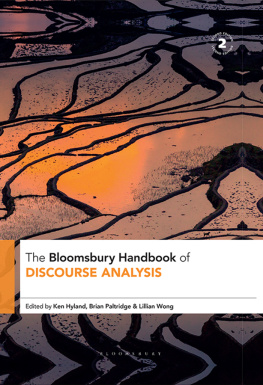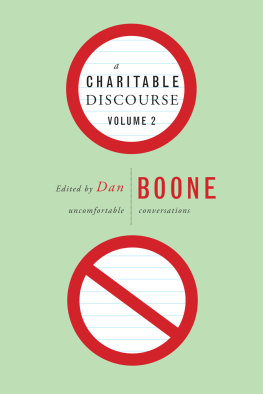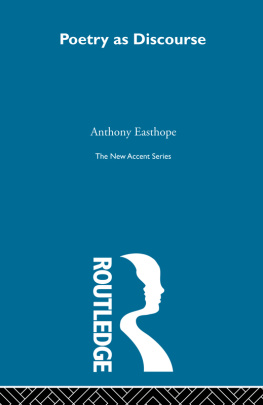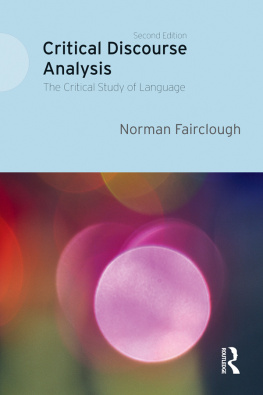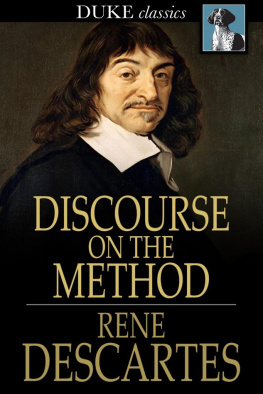Preface
Scratch the surface of current events and history and you will always find a good storyin fact, you will find several stories for the same episode, each recited by people who believe they know what is going on, even though their accounts are very different. Very little about us has changed over thousands of years of civilization. We have always had a good story to tell about who we are, why we are here, and what we ought to feel, think, and do. Our stories consistently concern power and wealth, and we have always told ourselves stories to justify why some have it and some do not. Our words announce what we believe and feel, even if these things are untrue. We tell ourselves stories to rationalize all things. We are creatures with existential concerns, and we have used language for thousands of years to understand the cosmos and our place in it. We are also creatures with material concerns who have used language to justify our ambitions and destroy those who interfere with them. We have used language to inspire, discover, develop, and imagine. History teaches us that the stories we tell and the words we use profoundly affect the world we create and the mind we inhabit.
I began this essay as a response to research that my colleagues and I conducted at a four-year public university. We investigated the reading proficiency of undergraduates, administered a survey of their reading habits and attitudes towards reading and reading instruction, and also administered a survey of faculty habits and attitudes towards reading and reading instruction. The research produced alarming data. Not only does the average college undergraduate read at a level far less than what the National Assessment of Adult Literacy calls proficient, but many students and faculty do not seem to care very much about that. Apparently, for the sake of removing barriers to students persistence to degree, some colleges and universities are not asking students to read much, read critically, or to develop and fortify their rhetorical capital.
The findings of the study led me to imagine a world wherein reading and rhetorical skills atrophied as a result of indifference and accommodation. I thought about what would happen if the gatekeepers of literacy and rhetorical capitalthe skills of listening carefully, focusing patiently, critiquing information fairly and thoroughly, crafting erudite and logical arguments, and so forthstopped holding people to high standards of communication and critical consumption of propaganda. What would happen to scholarship? What would happen to democracy? What would happen in the market? What would happen to our professions? What would happen to our civility? What would happen to our souls?
I do not have to imagine anything. Our rhetorical capital is being depleted all the time. Our communication often leaves us ill-informed, distracted from serious issues by sensation, and unsympathetic to people whose voices do not echo our own. Our narratives and discourse encourage an infantile and dualistic view of ourselves and the world. They coax judgement before intelligent questions are asked and sound evidence is presented.
Communication and our standards for rhetorical proficiency have changed over the last years. Digital shorthand replaces whole sentences. Letters that once were rich in complex and sophisticated discourse are replaced by abbreviations peppered with emogis. Elementary schools have relaxed expectations for students mastery of writing, grammar, spelling, and penmanship. Electronic media is a stream of endless commercials that tells us we can purchase our way out of mediocrity, boredom, misery, and low self-esteem. Colleges and universities award diplomas to students who can barely read at the th grade level. Corporate news media are long on spectacle but short on substance. Elected officials, who, in theory represent people worthy of representing us, fill the airwaves with hate speech and distortions of truth so regularly that people feel like they have been left to the wolves.
The technology of communication has improved over the last years, but our humanity has not changed anywhere near as radically. Cellular devices and satellites have made it easier to stay in touch with others, and digital platforms and software have made it easier to access information, data, and research. Technology has also increased our appetite for speedy communication and immediate answers and feedback. It has made it possible for people who lack education and expertise to represent themselves on the Internet as if they were authorities on the issues. It has also made it possible for images to be altered to give the appearance that people were in certain places doing certain things, when in fact they were never in that place doing those things. In addition, technology has facilitated the expansion of media outlets that all compete for audiences and commercial sponsorship. As audience interests tend to lean towards the sensational and unsophisticated, programming, including that for news shows and commentary, makes the adjustment to make a buck.
My interest in rhetorical capital is more than academic. Whether we go to college or not, our values, attitudes, and behavior are all influenced by the things we hear and see. Much of what our senses absorb is propaganda in the form of advertising, entertainment, and political rhetoric. We live in a world where others want to persuade us all the time. I am concerned about whether we have enough rhetorical capital to recognize dastardly discourse when we hear it. I am concerned about whether we have control of the narratives that make us who we are, and have the skills and will to resist and confront propaganda that infects our spirituality and humanity with hate, fear, greed, vengeance, and indifference to those who are poor and vulnerable.
We are creatures of stories, and we use myths and narratives to explain our origins, our purpose, what we should value, who and what we should love, glorify, fear, despise, trust, and obey. Narratives from the lips of demagogues can create prejudices against people whom we have never met, and confidence in things that are patently false. I am concerned that our national narratives, which tend to put the United States on a pedestal above all others, may sabotage our spirituality and humanity. I am concerned that in the name of pragmatism, our narratives become deaf to the spiritual needs of society. I am concerned that in the name of God, we will become beasts utterly devoured by our own nationalism, militarism and materialism.




